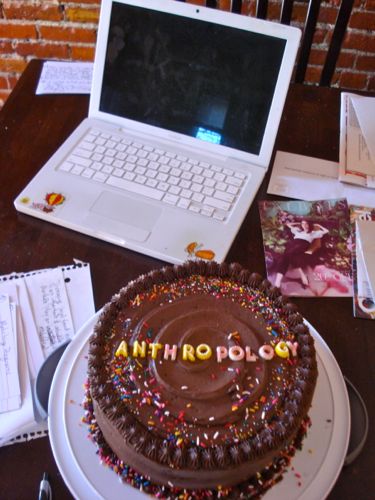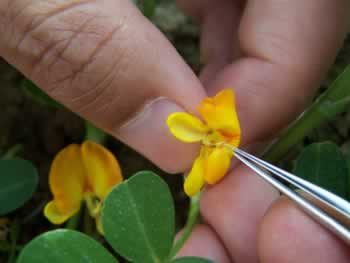 Photo: Erin Ross
Photo: Erin Ross
Food Studies features the voices of 11 volunteer student bloggers from a variety of different food- and agriculture-related programs at universities around the world. You can explore the full series here.
We’re a week into our fly-on-the-wall Food Studies experiment, so it seemed like a good time for a quick round-up. Although we’re just starting to get to know our 11 volunteer bloggers (seven have introduced themselves thus far, with four more to come next week), there are already some emerging themes, interesting overlaps, and contrasting points of view — not to mention lots of fascinating new snippets of information.
One thing that seems to run across food disciplines is the importance of place: Josh is studying Protected Designation of Origin in terms of how a local product functions in a global economy meanwhile, Peiwen’s field trip to Northern California has revealed how Singapore’s reliance on imports has shaped her own relationship to food up till now.
Another recurring theme — one that many of you can probably empathize with, given the fragile state of the global economy — is a pervasive anxiety about how to turn a love of food into a paying job. Do you have to grow or make food to stay involved with it professionally, or are there other options? Megan at NYU is studying business food writing and using a food desert data project in order to brush up on statistics and add transferable skills to her post-Food Studies resume. At Boston University, Erin has a hard enough time explaining what a masters in Gastronomy is, let alone what she’s going to do with it.
On the bright side, it’s hard not to be inspired by the little details in each post that hint at the invisible everyday miracle of our foodscape, from an appreciation of bee physiology born of hours spent hand-pollinating tomato plants to the incredible efforts of food processors to make sure that their cans of tomato sauce taste exactly the same, every single time you buy one. All of our Food Studies bloggers seem convinced that food can change the world, whether it be through the impact of an edible schoolyard on “at-risk” youth or the geopolitics of “virtual water” in the drought-prone Middle East — and, after reading their posts, it’s hard not to believe them.

Perhaps the best part so far is the way the Grist community has already joined in the conversation, with supportive comments, questions, and suggestions. How else would we find out that Jack London was a proponent of sustainable agriculture, or that Wilco’s Yankee Hotel Foxtrot album is the perfect accompaniment to Sour Cream Pecan Crumb Coffee Cake?
Meanwhile, there’s lots to look forward to over the coming weeks, with four more bloggers joining the team and reports back from a Rene Redzepi lecture and the Rutgers Sensory Lab. You can keep up with the entire series here, and if you haven’t added your voice yet, please do!



